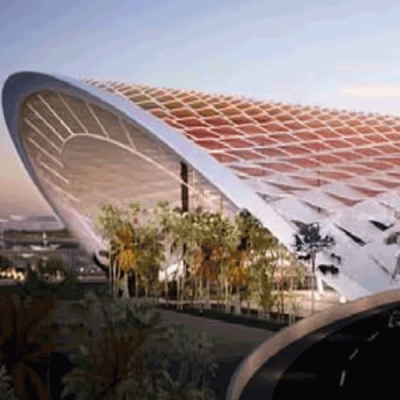

The architectural inspiration for the new integrated terminal building at Trichy airport draws heavily from the rich heritage of monuments in and around Trichy, along with influences from festivals like Pongal and rangoli. According to airport authorities, the iconic design is particularly influenced by the ornate roofs seen in the 'gopurams' of South Indian architecture. Prime Minister Narendra Modi is set to inaugurate the Rs 10 billion terminal on January 2.
Welcoming passengers with a structure reminiscent of the Srirangam Ranganathar temple gopuram, the terminal boasts a capacity to accommodate 4.5 million passengers annually, three times more than the current terminal. The two-level air-conditioned modular building spans 75,000 square meters, with an arrival lounge on the ground floor and departure facilities on the upper level. It is equipped to handle a peak hour passenger traffic of 3,900, encompassing both domestic and international flights.
The distinctive roof form dominating the departure concourse takes inspiration from traditional South Indian architecture. The terminal's roof, flooring patterns, column cladding, feature walls, and signage design all pay homage to local arts, culture, and traditions. Notably, the modular construction of the terminal allows for future expansion or alterations without compromising the existing structure and design.
Built in accordance with 'GRIHA' (Green Rating for Integrated Habitat Assessment) standards, the terminal boasts a four-star rating for its sustainable design. The architectural firm Pascall + Watson, with international acclaim, has been responsible for the design. The building's sustainability features prioritise the use of natural light and incorporate renewable energy measures, aligning with modern environmental standards.